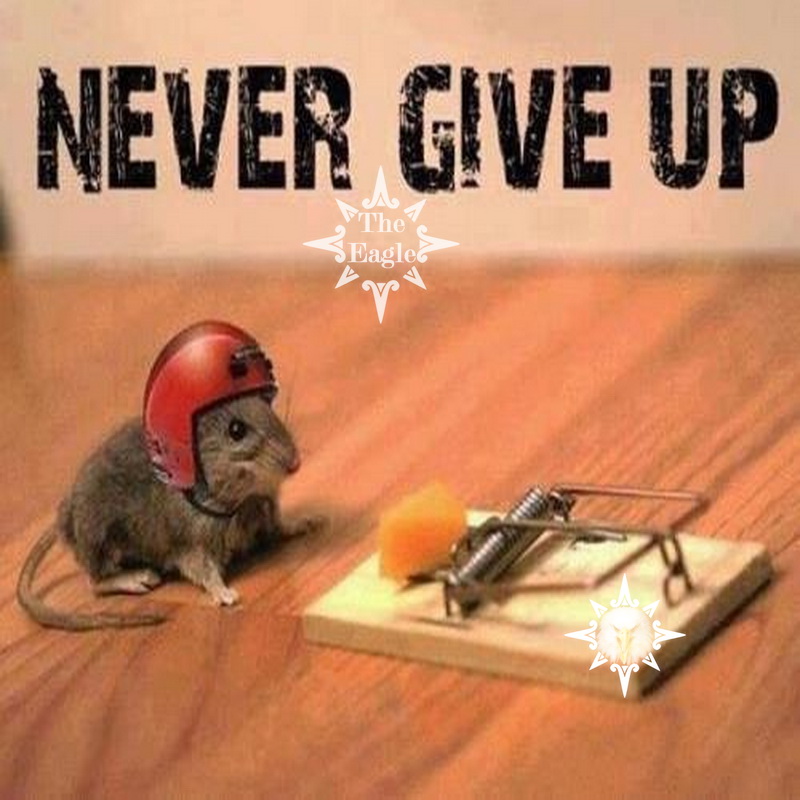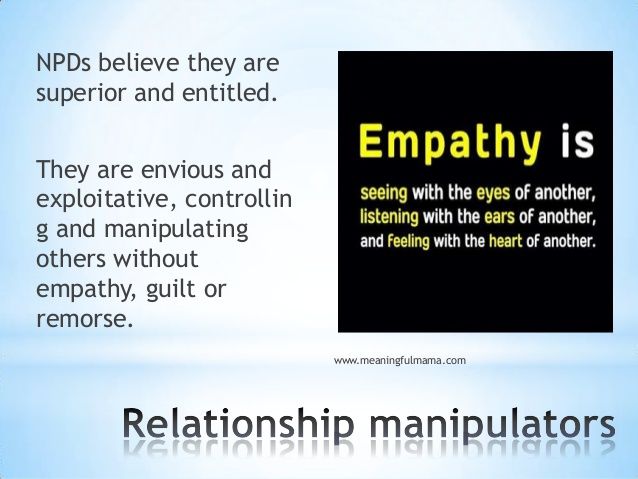How to raise an introverted teenager
6 Tips for Extroverted Parents Who Are Raising an Introverted Teenager
Parenting Trending
ByVeronique Hoebeke
Parenting teenagers is tough, but parenting a teenager who seems to have a completely different personality than you can be even tougher. As the child of two introverts, my desire to not be a social butterfly was well-understood. I can’t say the same for my introverted friends whose outgoing parents forced social activity after social activity on them. It may be confusing or frustrating to parent an introvert when you aren’t one yourself. Don’t worry, this introvert is here to help. I have put together six tips to help you better understand and connect with your introverted teenager.
(Not sure what counts as an introvert? Check out this simple guide.)
1. Accept that your teen will be different from you.There is some debate about whether our personality traits are influenced by nature or nurture, but either way, you shouldn’t expect your children to have the same disposition as you even if they do have 50 percent of your DNA. You may have been the “prom queen” or “football star” type with parties to go to each weekend, but that doesn’t necessarily mean that kind of social life would be of any interest to your teenaged kid. The most powerful thing you can do is accept your teenager for who they are. Don’t make them feel like there is something wrong with them if they are quieter than most. Nothing will wreck your relationship with your children more than insisting that they need to change a fundamental part of who they are.
2. Bond with them in their territory.Introverts are usually content to pursue their interests alone. While extroverted teens might want to gather a bunch of friends to go to a movie or skateboard in the park, introverts may be perfectly happy doing these activities alone. This also means they may not been too keen on doing activities together as a family if you have other children or relatives living at home. Because of this, it may seem like your teenager is shutting you out. Teens do tend to rebel against their parents, but that may not be why your introverted teenager isn’t sharing their thoughts or interests with you or the rest of the family. It’s possible that including anyone else in their interests and goals just slipped their mind. Since you shouldn’t expect to be outright invited to share in your teenaged kid’s interests, you must engage with them.
This also means they may not been too keen on doing activities together as a family if you have other children or relatives living at home. Because of this, it may seem like your teenager is shutting you out. Teens do tend to rebel against their parents, but that may not be why your introverted teenager isn’t sharing their thoughts or interests with you or the rest of the family. It’s possible that including anyone else in their interests and goals just slipped their mind. Since you shouldn’t expect to be outright invited to share in your teenaged kid’s interests, you must engage with them.
Ask questions about what books they’ve read lately or if there is a new movie they want to see. If you do this in non-nosy way, chances are your introverted teenager will start to open up over time. Suggest that just the two of you do something that is in line with your teen’s interests. Your introverted teen will likely appreciate the one-on-one time.
3. Push their comfort zone… gently.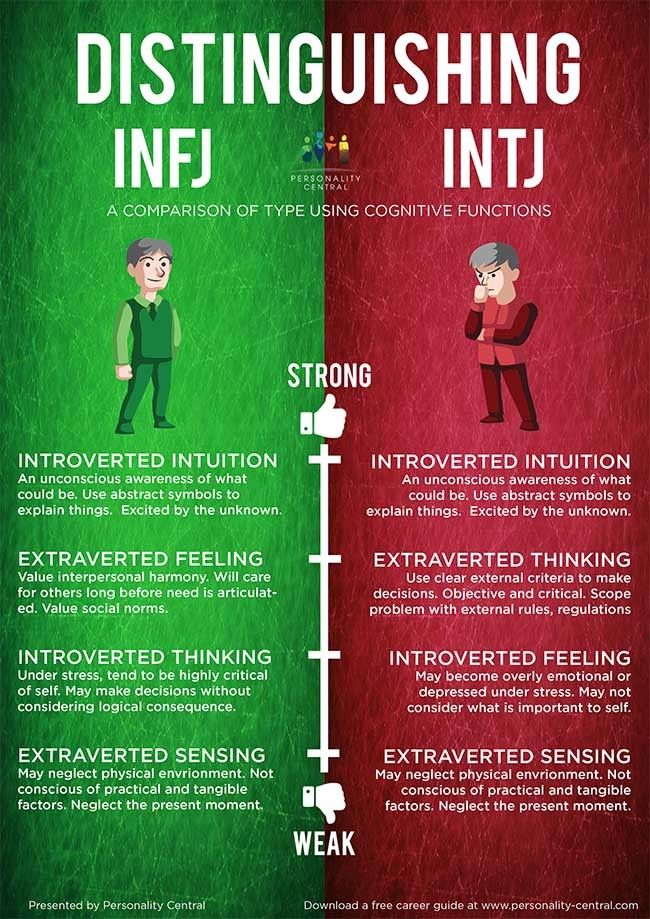
When it comes to expanding your introverted teen’s comfort zone, you must strike a balance between pushing them too little and pushing them too hard. Introverted teens can easily fall into a pattern of spending all their free time alone. School and being a teenager in general is hard. This is why they might retreat into their rooms for a lengthy period of time to recharge their mental batteries. Allowing them to have alone time is good, but too much of it can contribute to feelings of depression or low self-esteem. However, chances are if you have a teen boy who is used to spending most of his free time alone or with a few friends, and you force him to go to a huge birthday party or a football game where he’ll be surrounded by thousands of screaming people, he probably won’t have a good time. In fact, forcing him to socialize on your terms or by doing things only you or other family members want to do is a surefire way to make him want to retreat more and more into his room. Much like point two, find out the ways your introverted teen likes to socialize and encourage them to invite their friends along. If they struggle with meeting new people, find a club, group, or event that is centered around one of their interests. This way your introverted teen will feel like they have something in common with the other people around them.
Much like point two, find out the ways your introverted teen likes to socialize and encourage them to invite their friends along. If they struggle with meeting new people, find a club, group, or event that is centered around one of their interests. This way your introverted teen will feel like they have something in common with the other people around them.
In my life, there have been many times that I’ve come across as rude or disrespectful just because I’m introverted. If you think your introverted teens might have said something disrespectful, ask them what they meant before instantly punishing them. Introverts with “thinking”-type personalities tend to respond in a matter-of-fact way. This might cause adults to think that they are smart-talking, when in reality, they are just trying to relay the facts to you. If you take a moment to pause before jumping to conclusions, you might see that your teen wasn’t trying to be snarky. Also, remaining silent when spoken to may not necessarily be a sign of disrespect. Your introverted teen might be struggling to vocalize the right thought before speaking. Giving them time to speak will save you from any rash judgements or misunderstanding, which could damage your relationship with them.
Also, remaining silent when spoken to may not necessarily be a sign of disrespect. Your introverted teen might be struggling to vocalize the right thought before speaking. Giving them time to speak will save you from any rash judgements or misunderstanding, which could damage your relationship with them.
Speaking to new people and connecting with them may be something that comes easily to you but may be a challenge for your introverted teenager. So, don’t push them into social situations without giving them the skills to handle them. That’s right, being social is a skill, much like math, auto-repair, or painting. Some people are born gifted in those areas and others have to apply themselves in order to learn these skills. Chances are if you’re extroverted, you are naturally better at talking to and relating to people than introverts. Don’t try to socialize for your introverted teenager, but instead, help them by imparting your social wisdom to them. For example, if you see that they struggle to start conversations, give them advice on how to better speak to new people. Maybe you can tell them that complimenting what someone is wearing or asking them about their family has always worked for you. For more tips on social skills, see this article, Social Skills 101.
For example, if you see that they struggle to start conversations, give them advice on how to better speak to new people. Maybe you can tell them that complimenting what someone is wearing or asking them about their family has always worked for you. For more tips on social skills, see this article, Social Skills 101.
Parents of all teens, extroverted or introverted, should be vigilant about their children’s mental health. The symptoms of many mental health disorders begin to appear in late adolescence and young adulthood, with depression and anxiety being the most common. There is a line between your teenager being introverted and having a mental health issue. Introverted teenagers will still be able to get through the day at school, pursue their interests, and have friends. Their quiet nature shouldn’t stop them from functioning on a daily basis. But if you notice that your teenager struggles to get by without being extremely sad or angry, that could be a sign of depression. Also, if your introverted teenager is highly uncomfortable socializing with others or avoids it all together, that could be a sign of social anxiety. Be on the lookout for any changes in their mental health, and don’t be afraid to seek help.
Also, if your introverted teenager is highly uncomfortable socializing with others or avoids it all together, that could be a sign of social anxiety. Be on the lookout for any changes in their mental health, and don’t be afraid to seek help.
Parenting any teenager can be hard, but I hope you’ve learned how to navigate the complexities of the introverted teen a little better. If you appreciate their differences and work with them, there is no reason you can’t have a happy family of both introverts and extroverts.
Veronique Hoebeke
Veronique is a professional blogger and the founder of Very Unique Marketing, a marketing enterprise that specializes in helping small businesses and nonprofits grow their online presence. She is an INTJ personality type who spends most of her free time reading and writing thriller novels and hanging out with her fiancé, Aaron, and their rescue dog, Oscar.
How to Raise an Introverted Teenager: 10 Tips for Parents
It’s time for hard facts.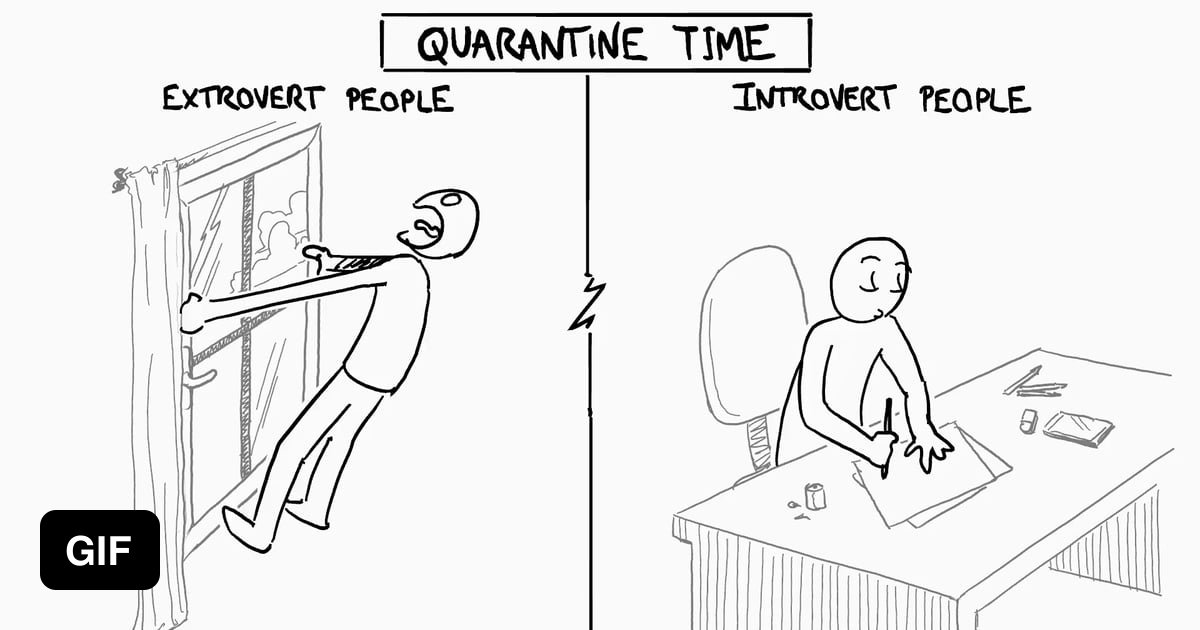 This world is an extroverted one, and the outgoing get the most out of it. How does a concerned parent raise an introverted teenager and help them to thrive?
This world is an extroverted one, and the outgoing get the most out of it. How does a concerned parent raise an introverted teenager and help them to thrive?
Socialising is an integral part of life as a teen. The teen years are the ones when young people find out about themselves. So if your teens don’t make as many friends as they should, why not give them a hand?
Being an introvert is a challenge at any age since today’s world focuses so much on speaking out and being outgoing. Nature has wired the introvert’’s brain differently from the extrovert. In particular, the “fight or flight” aspect of their nervous systems is active, as research proves. The tendency puts them at a social and sometimes academic disadvantage.
Experts like Dr. Marti-Olsen Laney, author of The Introvert Advantage, share that an introvert will not feel fulfilled until he or she has alone time. She elaborated further than the dopamine levels at wild parties can overwhelm teenagers who are reserved and stressed that their quiet natures aren’t the result of a lack of social skills. That said, their habits entail that they don’t have as full a circle of friends as their peers.
That said, their habits entail that they don’t have as full a circle of friends as their peers.
Apart from having fewer friends, there is the problem of being discounted. Teachers tend to underestimate introverted teens, seeing them as being unable to speak up for themselves or provide adequate responses to questions. The truth is that if you discuss a topic that interests introverted children, you might not get a chance to speak yourself. Sadly, educators often overlook this inclination of theirs.
How do we help the inward-looking teen succeed in life?
Reserved teenagers need a little help with finding success in this outward-looking world. Reaching out to them is a challenge, so you could use a few tips if you are a hassled parent.
1. Encourage them to talk about their feelings
Introverts aren’t masters at discussing their emotions and prefer to keep their innermost thoughts to themselves. Teens, who are at the most socially awkward stage of life, are even more prone than adults to masks their feelings.
Provide them with an outlet for describing their thoughts and fears. Suggest that they keep a journal or draw if they aren’t comfortable with full disclosure.
2. Avoid labelling your child
Despite what you may believe, introversion is not a sign of social-emotional dysfunction. Introverted teens have different needs from their extroverted peers. Labelling them as “loners’ makes them feel awkward and presses them to believe that they are what you say they are. The best thing parents can do for them is to accept them as they are, quietness and all.
3. Teach your child to seek help
No man is an island, and all of us need help once in a while. Quiet teenagers prefer to solve problems themselves because they feel too embarrassed to ask others to give them a hand.
Teach your introverted teenager that there is no shame in asking for help. Doing so is a way for them to interact with others. They will soon discover that collaboration is necessary for progress.
4. Practice creative problem-solving
We can deal with dicey social situations if we think through them. Teenagers who tend to be introverted, however, tend to have more problems dealing with them than their peers. Model tough social situations and get them to suggest how to handle them. You’ll find that introverted teenagers are creative types. They will develop self-confidence, knowing that they thought of these solutions themselves.
5. Have conversations
Introverts may not seem to have the skills to form social relationships at first glance. They may have better-developed ones than their peers.
While they do not like to engage in small talk, they prefer to look a person in the eye and offer their honest opinions. They’re not avoidants but prefer more in-depth conversations. Help them to express themselves by having open, candid talks with them.
6. Respect their social preferences
Introverts are quiet and dislike the limelight. You’ll find them interacting with one or two people instead of a large group. Give your introverted teen a chance to observe crowds before conversing with people. Your child may be more inclined to join them once he has a good idea of how they interact.
You’ll find them interacting with one or two people instead of a large group. Give your introverted teen a chance to observe crowds before conversing with people. Your child may be more inclined to join them once he has a good idea of how they interact.
Furthermore, don’t pressurise your quiet teens to make friends. Note that they prefer to do so on their terms and keep their friendship circles close-knit. Encourage them to make friends with other introverts.
7. Develop a positive self-image
Many reserved teens have poor self-images because people use negative words like “loner” or “weirdo” to describe them. Accept them as they are and avoid using negative labels such as these.
Make an effort to correct others who label them. For instance, if someone says that they are ‘standoffish’, use the word ‘contemplative’ instead.
8. Teach your introverted teen to speak up
Remind your quiet teens that their opinions matter. If their quietness makes them the targets of bullying, teach them to speak to trusted adults. Listen when your children talk and encourage them to verbalise their thoughts. Above all, teach them to assert themselves.
Listen when your children talk and encourage them to verbalise their thoughts. Above all, teach them to assert themselves.
9. Nurture their interests
Your teen may prefer classical music and refuse to listen to rock bands. Find classes that will nurture these interests. Remember that different doesn’t mean strange. Consider enrolling them in computer camps if they have an interest in information technology.
10. Provide new experiences
An introverted teen usually resists new things. Tell them that everyone feels this way. That said, they should be adventurous and develop new ideas. If they still dislike the experience, respect the fact that they at least tried.
Your introverted teenager may not love the things extroverts do but can develop as fully as they can. As a parent, all it takes is to show them the way.
- Author
- Recent Posts
Michelle Liew, B.A.
Staff writer at Learning Mind
Michelle Liew is a professional writer and teacher with over 20 years of experience.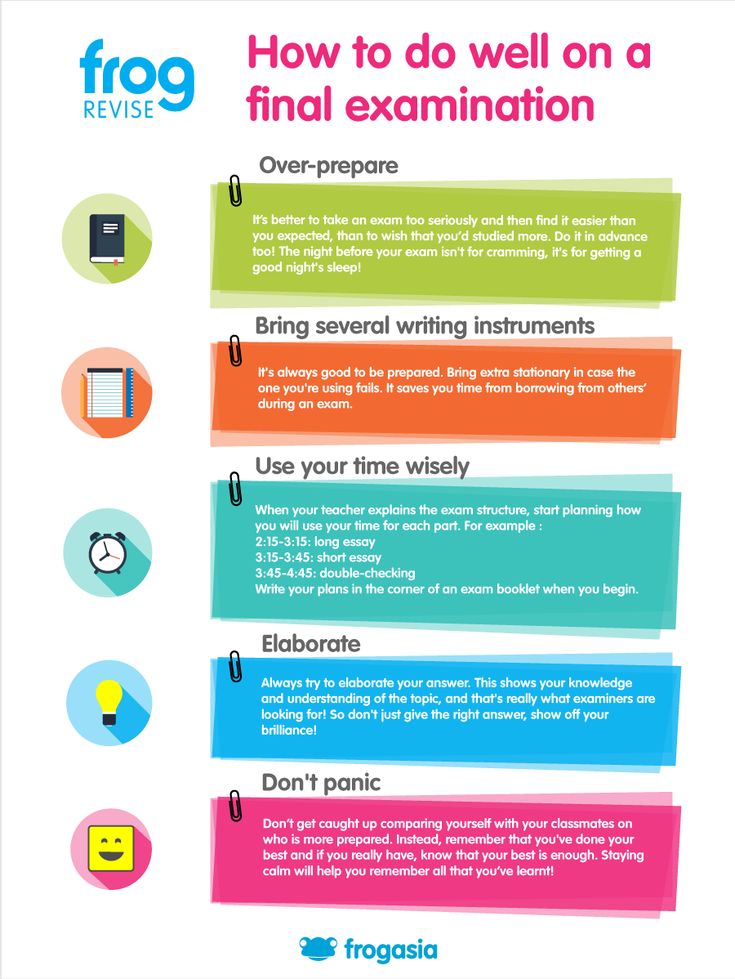 She earned a Bachelor of Arts (English and Literature) from the National Institute of Education/Nanyang Technological University of Singapore and has taught English language, literature, and music in Singapore schools for over 12 years. Michelle's vast experience of working with children allows her to share valuable advice on parenting, child psychology, and education with her readers.
She earned a Bachelor of Arts (English and Literature) from the National Institute of Education/Nanyang Technological University of Singapore and has taught English language, literature, and music in Singapore schools for over 12 years. Michelle's vast experience of working with children allows her to share valuable advice on parenting, child psychology, and education with her readers.
Latest posts by Michelle Liew, B.A. (see all)
Copyright © 2012-2022 Learning Mind. All rights reserved. For permission to reprint, contact us.
Tags: behavior, childhood, communication, introversion, parenting, self-confidence, teenager
Teen introvert what to do. Peculiarities of Raising an Introverted Child
Susan Cain
As much as I would like schools and teachers to reconsider how they assess classroom discussions, I still believe that you will get a lot of benefits if you try to become more active and learn to voice your own thoughts, rather than keeping them to yourself. Your ideas deserve to be known and appreciated!
Your ideas deserve to be known and appreciated!
Researchers have found that in a typical group environment, the contributions of introverts become more valued over time. Others understand that although introverts rarely raise their hand, they always voice something thoughtful if they dare to speak. nine0003
And since you don't like to take part in discussions, try to figure out why it is so unpleasant for you. If you understand the cause of fear, it will be easier for you to develop a strategy to overcome it. Gradually, you will learn to express your thoughts the way you like and feel comfortable.
Why does it sometimes seem unnatural to us to "voice"? Here are some common reasons:
Some of the above is related to the fear of awkward situations: you are afraid to do something wrong and embarrass yourself in front of everyone. There is no need to be ashamed of this fear. Most people experience it from time to time, it's just that for some it's especially strong. nine0003
nine0003
When fear takes hold of you, be aware that you are not the only one. Try to overcome fear gradually, in small steps, for example, raise your hand if you know the exact answer to a question.
The more often you do this, the more small victories you will have over yourself. And over time, it will become much easier for you at school (even if now you think that this is impossible). If you experience fear every day in the presence of a large number of people and it prevents you from doing what you like, I advise you to contact a psychologist or counselor. nine0003
However, the more often you speak out loud, the more clearly you will begin to understand that it is not necessary to always give the correct or “ideal” answer and live up to the expectations of others. Some of the reasons listed above are specifically related to the desire for perfection, which suffers from many introverts. This is a double-edged sword: on the one hand, it ensures the high quality of your work, and on the other hand, it can prevent you from speaking out in public, because not everything we say or do is perfect. nine0003
nine0003
Reluctance to speak is not always due to fear, anxiety or perfectionism. Often, introverts simply don't want to chit-chat (and many people I've talked to wish everyone would follow this rule!). Unlike “thinking out loud” extroverts, we introverts prefer to think first before speaking. Our ability to focus deeply on a particular topic is a real gift. But when the teacher suddenly calls us, we literally freeze, because we had no time to prepare! Often, we introverts pay so much attention to the content and clarity of our responses that we prefer to keep quiet rather than blurt out the wrong way. Sometimes by the time we mentally formulate the right answer, the discussion is already over. nine0003
The teens I interviewed for this book came up with a variety of strategies to get them heard. Many admitted that the more often they participate in discussions, the easier it becomes for them to learn.
The most important thing is to create comfortable conditions for participation in the discussion. Sometimes just getting in the right place is enough. One of the students we spoke to always tried to sit in the front row. Thus, when answering, he did not see the faces of his classmates and did not experience the intense tension that usually arose under their gazes. nine0003
Sometimes just getting in the right place is enough. One of the students we spoke to always tried to sit in the front row. Thus, when answering, he did not see the faces of his classmates and did not experience the intense tension that usually arose under their gazes. nine0003
Another boy said that he likes to sit with friends - they help him maintain a positive attitude. Other children have learned to focus on one of the friendly classmates during the answer and address them (rather than those who seem indifferent and arrogant).
And someone is helped by the thought that other people are also nervous! For example, 16-year-old Lola from Queens, New York, noticed that her classmates were so absorbed in impressing others that they didn't care about her worries. nine0003
The truth is that everyone feels vulnerable when they share their thoughts with someone. Even people who seem confident worry about whether they got the right answer. So everyone has the same problem.

Some find answering in class easier than talking to peers about everyday topics. Henry from Toronto is in sixth grade. In the lesson, he has the opportunity to speak out without participating in the dialogue. He answers, and then the teacher calls the next one, and the boy does not have to try to keep up the conversation, as is usually the case in friendly communication. nine0003
Grace, whom we met at the beginning of the chapter, learned to answer not immediately, but after a while, when she "ripened". This strategy proved to be effective. But you can do the opposite - prepare in advance and answer first. When I was at Harvard Law School, that was what helped me.
In January 2013, I gave a lecture on the book Introverts at an event in Washington DC. When it was time for the questions, my friend Angie took the stage. She and I met while studying at law school and recently started talking again. Angie stated that in college she had no idea that I was an introvert. nine0003
nine0003
Everyone was surprised, including me. But Angie noticed that in class I was always the first to raise my hand. Do introverts do this?
I understood her confusion. At Harvard Law School, classes are held in large auditoriums designed like an amphitheater, and teachers adhere to the Socratic method of teaching. The professor calls the students at random, and when they call you, you can't evade the answer. This is very scary, but since you signed up for the course, it means that you must answer. nine0003
I knew the rules, but I really didn't want to be called unexpectedly. Therefore, on the eve of each lesson, I prepared on several topics - depending on what we were studying at one time or another. Then, plucking up courage, she would raise her hand first and answer as soon as possible, without waiting for the discussion to move into an area unfamiliar to me. As a result, the chance that the professor would call me towards the end of the class and I wasn't ready became much less likely. I knew that the last people to ask were those who had not yet answered. nine0003
I knew that the last people to ask were those who had not yet answered. nine0003
This strategy turned out to have another good advantage, confirmed by social psychologists: it turns out that the thoughts of people who speak first in a group tend to have the most weight. Indeed, during the discussion, the professors repeatedly returned to my answers, which made me (quite unexpectedly) begin to feel more confident.
Naturally, I'm not the only one who came up with this trick. When Davis was in high school, he could not even think of speaking in front of the whole class. And once I got the first four in my life. The English teacher explained that participating in class discussions also affects grades, and since Davis never raises his hand, he can't give him an A, no matter how well he does on the written exam. nine0003
“It was not an easy choice,” Davis recalls. “Get a four or raise your hand.” Davis was proud of his excellent grades and did not want to settle for a lower grade, so he forced himself to raise his hand and read aloud. “At first it was very scary. I was afraid to stumble, I was afraid that the tongue would begin to tangle. The forehead was covered with perspiration. But I still held out my hand,” he says. By taking such a bold step, Davis overcame his fear and left it far behind, which I will discuss in more detail later. nine0003
“At first it was very scary. I was afraid to stumble, I was afraid that the tongue would begin to tangle. The forehead was covered with perspiration. But I still held out my hand,” he says. By taking such a bold step, Davis overcame his fear and left it far behind, which I will discuss in more detail later. nine0003
Among those who read my book, there are certainly those who think that the fear of speaking in class is impossible to overcome. But everything is far from it! You will be able to defeat him and you will understand that it is much easier than it seems. Henry says that over time it became so easy for him to answer in class that he even loved being called to the blackboard!
Trust me, you can do the same.
If every time you raise your hand in class, your heart is ready to jump out of your chest, know that you are not alone! Many people experience the same thing, but this does not mean that you need to be silent all the time. If you didn't have time to read the previous chapter, here are some tips to help you. nine0003
nine0003
Be the first to answer. If the topic of discussion is known in advance, plan what you will say. Think over the answer, form your own opinion and speak out before the discussion takes an unexpected turn.
Determine when and where to start . When is the best time for you to join the discussion? Strategize and join the discussion when it's easier for you to do so. Don't like being the first to reply? It's okay: you can supplement or develop the thought of another student. Or maybe you like to ask provocative questions or play "devil's advocate" (that is, to defend a point of view that is different from the opinion of the majority)? Choose the role that suits you. nine0003
Use notes. If you are afraid that when you open your mouth you won't be able to utter a word, write down your ideas on a piece of paper and refer to it if necessary.
Communicate with the teacher. You had something to say in class, but you just didn't have the courage to raise your hand? If you are worried about this, go to the teacher after class and explain the situation.
In fact, the topic is interesting and you listen carefully, but it is difficult for you to quickly join the discussion, so you are nervous and silent. nine0003
Watch your classmates. Notice when others talk nonsense or answer incorrectly, no one pays attention to it. All people make mistakes, and their mistakes can be understood and forgiven! Having understood this, you will become more calm about your own mistakes. You will understand that if you answer incorrectly or your voice trembles a little, nothing bad will happen. “If you answer incorrectly, the teacher will just ask someone else,” notes one very perceptive girl named Annie. nine0003
Find motivation. The best way to survive in school is to get excited about something. This does not mean that all the shy and quiet guys should become leaders among their peers and run for class president - nothing like that! Think about what is important to you. If the topic of discussion is not indifferent to you, you can speak freely on it.

But in addition to the main types of temperament, people are also divided into two types depending on psychological characteristics: and. nine0003
In most cases, already from early childhood, a person can be attributed to one or another type and find out what type your child belongs to - an introvert or an extrovert.
Introverts feel empty when their physical space is invaded.
If they are among people, this in itself takes energy from them, even if they do not interact with anyone.
Marty Olsen Laney. Invincible introvert
Introvert child: character traits nine0093
- people who do not need others to replenish their spiritual energy. They are fueled by sleep, spiritual food (music, films, art) and may well do without communication for a long time. The energy is directed inward, to one's own feelings and experiences.
There are obvious introverts among children. For the correct selection of methods of education, parents need to know what type their child has.
Here are some tell-tale signs of an introverted child:
- Such children are not inclined to communicate with their peers. Sometimes it can even be a burden for them. They treat loneliness normally, they don’t worry about it.
- If the child is very young, he may refuse to be held by strangers. Also, most likely, she will burst into tears with too close attention of the crowd, for example, at a holiday.
- Lack of communication breeds uncertainty. Such children are also excessively touchy. nine0104
- They get tired quickly at public events and ask to go home during the whole holiday.
- Often creative individuals. They have a vivid imagination, draw well. They can spend a long time doing this activity, even alone.
If you notice such traits in your child, you should not sound the alarm. These are features of the psyche and are not a deviation.
A child who does not run to play with a crowd of children, but spends time with toys, most likely does not need a huge amount of communication, he is interested in himself. This is normal, and you should not push him to the playground with the guys if the baby does not want it. At onslaught an introvert child can withdraw into himself .
Introvert child: how to educate?
Children-introverts are often silent, keep everything to themselves, but if they can trust a person, they become interesting interlocutors and attentive listeners. They are calm, and thanks to perseverance, they achieve academic success more easily than extroverts.
- New acquaintances cause stress in introvert children. Therefore, parents should prepare an introverted child in advance for changes in the situation. nine0061 .
- Parents should treat such a child more carefully . If there is a trip to an unfamiliar place, it makes sense to tell the baby about the upcoming event, discuss who he can meet there.
 Tell why friendship is needed and how beautiful it is.
Tell why friendship is needed and how beautiful it is. - Introverted children are in dire need of personal space . Parents should respect the desire of the child to have a secluded corner where he can be alone with himself and his thoughts. You should also be careful with the personal belongings of the baby. They mean a lot to such a child. nine0104
- It is also important to help your child communicate with other people at first, until he has gained the ability to find a common language. It may be necessary, for example, to bring the baby to other children on the playground and introduce them.
- Do not force a child to speak when he wants to be silent . Introverts restore their vital energy by being inside themselves. And they spend by interacting with people. Therefore, it is quite possible that returning from a noisy holiday, the baby will be silent and will not rush to talk about his impressions. Do not confuse this with sullenness. Reluctance to speak does not mean that the child had a bad day, just that he spent too much energy, and now he needs to restore them.
 nine0104
nine0104 - An introverted child takes time to get used to new situations . It is necessary to respect his desire to get comfortable in a new team or environment. Having come to visit, let him play a little on the sidelines if there are many unfamiliar children in the company. Having got used to it, it will join the atmosphere. The main thing for mom is not to exert pressure during such a “distance”.
Without proper moral rest, communication brings unpleasant sensations to introverted children, exhausts them.
Conclusion
Don't worry if your child is an introvert. With the active help of parents, over time, the baby will acquire the necessary communication skills. And the talents that introverts are rich in will find expression in creativity.
It is worth encouraging independence in such children, helping them in every possible way in unfamiliar situations, and also nurturing their interest in society.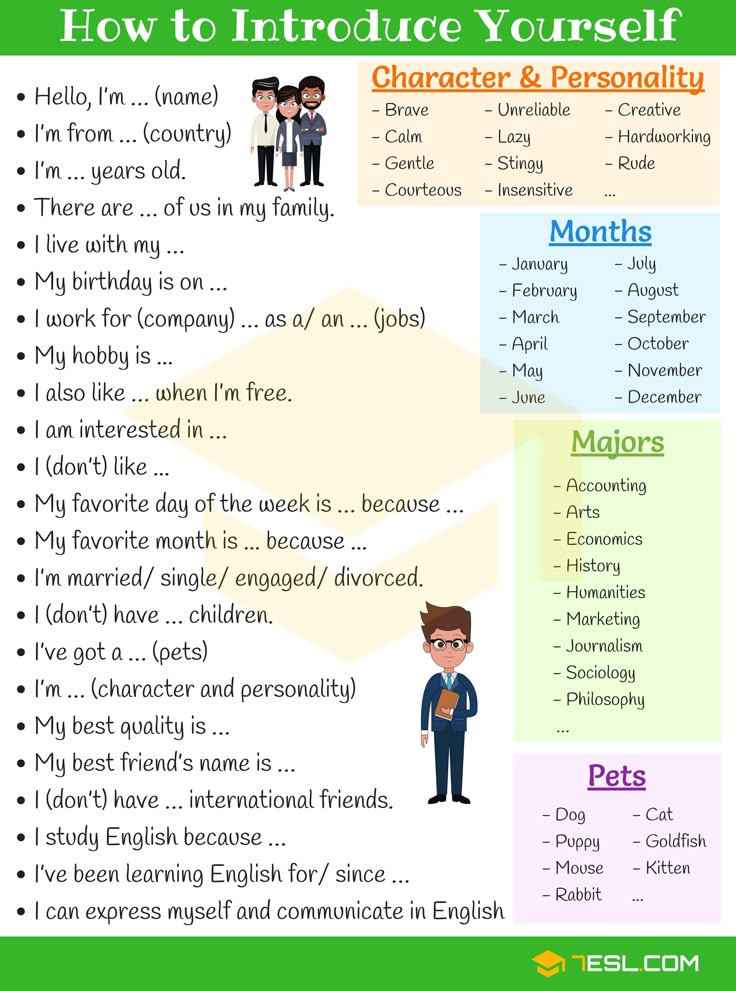 It is important for parents to become a reliable support for such a child in an unfamiliar world.
It is important for parents to become a reliable support for such a child in an unfamiliar world.
Great artists, psychologists, writers and designers grow out of introverts, as well as wonderful true friends! nine0003
"During difficult periods, when a teenager is not comfortable in the world of adults, when he lacks self-confidence, he finds support in an imaginary life."
Francoise Dolto
Teenagers of today's children can be considered as early as 10-11 years of age. And it is during this period that it is important for parents to reveal the natural psychological potential of their maturing children. Unfortunately, it is not known when and how long the period of greatest sensitivity for each particular teenager lasts - the period of transformation and change. A period when it is especially important to be "at arm's length", to be available and express your love to a teenager who is not able to accept and love himself. nine0003
nine0003
Adolescence is a "tender" age, surprising in that a teenager responds to all the good that is done for him, although he does not immediately respond to this good. It is important for an adult to be stable, even if it seems that everything is "like peas against a wall."
Especially it concerns the development, and not the suppression of the potential of adolescent introverts. After all, an extrovert is not so easy to put in a box, he is more contact and energetic in defending his values.
Introverts, on the other hand, have their own characteristics, which are valuable to them and need support, not correction. By suppressing and reshaping the introvert for the best of reasons, or by ignoring his natural data, the parent risks getting an infantile adult, a child who is dependent and incapable of being an adult and responsible. nine0003
We have identified seven main features of introverts, to which we recommend that parents and people close to a teenager respond as follows:
1.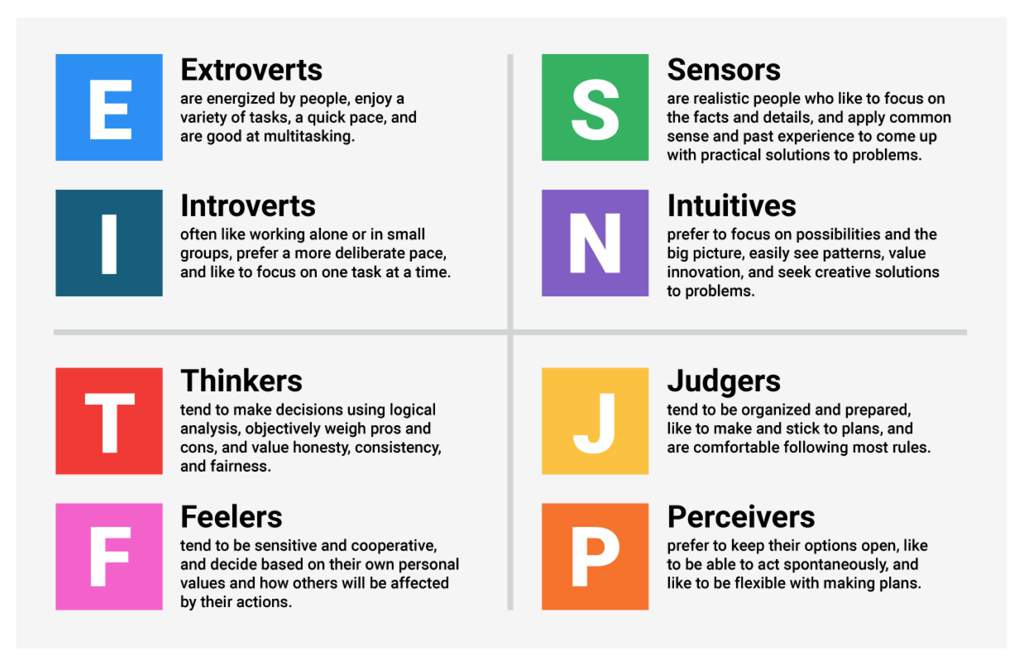 The ability to be alone with yourself.
The ability to be alone with yourself.
Loneliness can be painful for an extrovert, but necessary for an introvert. For the latter, this is an opportunity to recover from contacts with people, to understand oneself and build new spiritual connections and chains in the inner plane. Parents are often alarmed by the desire of a teenager to be alone with himself, his need to talk little about his life, secrets, it seems to them not a creative, but a destructive element of his life. nine0003
Recommendation : remember that the introvert's loneliness is his need to be himself and with himself. He is good at this and should not interfere with him. It is important to share the value of the need to be alone. Support for a teenager in this case will be, on the one hand, respect for his boundaries, on the other hand, the help of an adult in building relationships with the outside world. Through careful contact with an adult, when a child can share his experiences and be accepted, understood, heard, he will gradually begin to expand his social circle and trust. At the same time, it is important for the parent to be open in their manifestations and not to rush the teenager with an answer, to let him think and react at his own pace. nine0003
At the same time, it is important for the parent to be open in their manifestations and not to rush the teenager with an answer, to let him think and react at his own pace. nine0003
2. Sensitivity.
.
Introverts subtly perceive the world around them. For them, it is very voluminous and consists of many smells, sounds, they notice many details of the phenomena that surround them.
Recommendation : Try to tune in to the unhurried wave of the child. Share with him the measured and focused on every action that he does. To support his ability to enjoy simple things, enjoy the moment, stay in the flow of life. nine0003
3. Desire to learn.
Thirst for knowledge, curiosity, perseverance, consistency and flexibility in learning are characteristic of almost all introverts. Especially if they meet attentive and charismatic teachers and trainers who are able to captivate the subject and notice the talent of the student.
Recommendation: Encourage interest in studies and chosen subjects.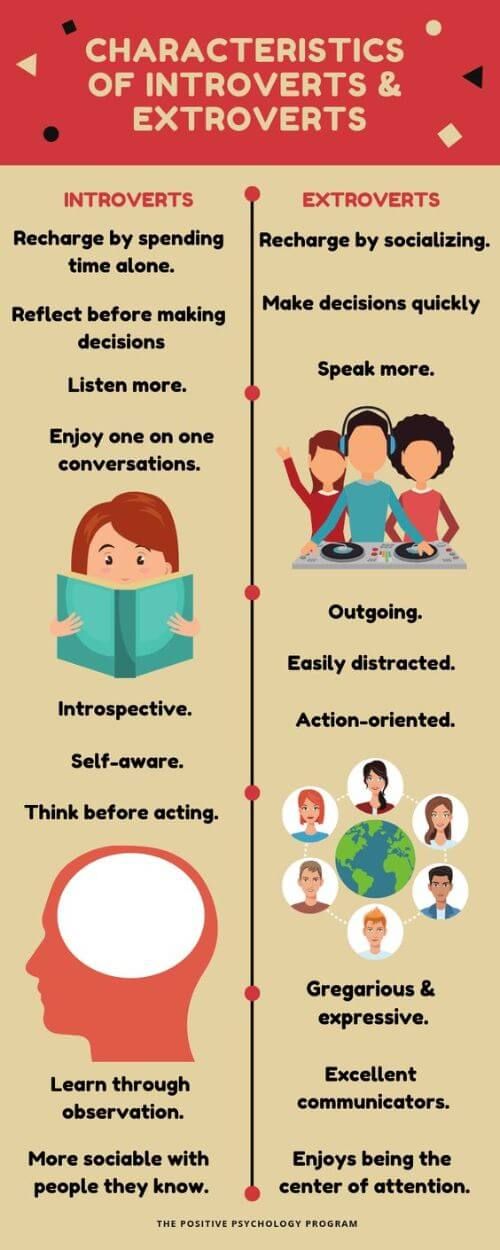 Do not worry about the fact that the child reads a lot, do not insist that he spend more time outside with friends. Offer a teenager festivals, exhibitions, events related to his interests in order to expand his view of the world, motivate him to communicate with other people from "his flock". nine0003
Do not worry about the fact that the child reads a lot, do not insist that he spend more time outside with friends. Offer a teenager festivals, exhibitions, events related to his interests in order to expand his view of the world, motivate him to communicate with other people from "his flock". nine0003
4. Thinking outside the box.
Introverted people are able to cope with their difficulties through creativity. Imagination helps them overcome anxiety, find a way out of dead ends.
Recommendation: Encourage creative thinking and this approach to difficult situations. Find activities that develop the child's gift - versification, drawing, music circles. A parent can consult with a teenager, ask him to give his unique answer to the difficulties that the parent gets into in contact with him. nine0003
5. High emotional intelligence.
Teenagers who are introverted can recognize their feelings and understand well what happens to other people in a given situation.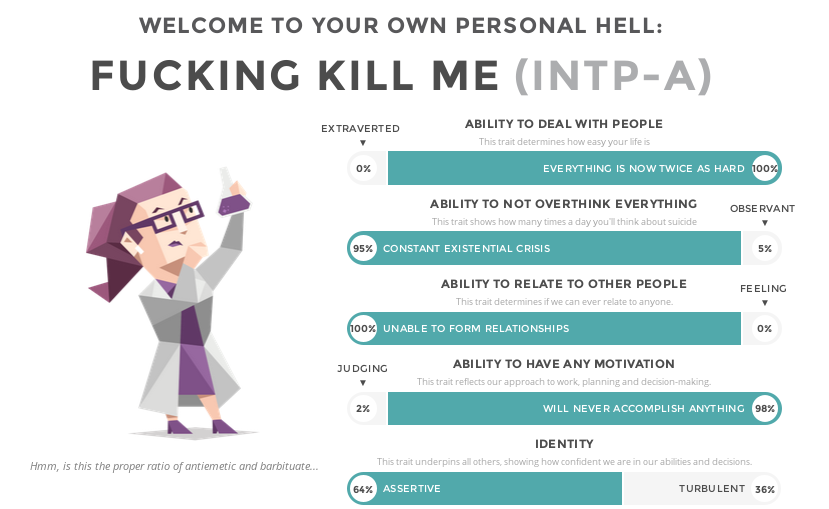 Their peculiarity is that emotional reactions are somewhat delayed in time. The child can react when the event has already passed, ended. With such an opportunity, it is not quick, but qualitatively to feel the introvert early develops moral guidelines - sympathy for others, a sense of justice, which he may not show because of distrust of himself, his ability to have his own opinion and defend it. nine0003
Their peculiarity is that emotional reactions are somewhat delayed in time. The child can react when the event has already passed, ended. With such an opportunity, it is not quick, but qualitatively to feel the introvert early develops moral guidelines - sympathy for others, a sense of justice, which he may not show because of distrust of himself, his ability to have his own opinion and defend it. nine0003
Recommendation: appreciate his ability to feel and maintain the right to express his feelings and thoughts. If the child sees the feelings of the parent and speaks about them, confirm his guess, answer sincerely. When a teenager shares experiences about the past, listen to him with all his attention, remembering that for him the time to react has come only now.
6. An interesting interlocutor.
Recommendation: to support this ability, to make it significant, to notice in a conversation with a child his exact wording, attention to the interlocutor, understanding and resourcefulness in decisions. Help to find friends, a society in which these talents will be revealed, and to get out of a toxic environment in which they will not be appreciated. nine0003
Help to find friends, a society in which these talents will be revealed, and to get out of a toxic environment in which they will not be appreciated. nine0003
7. Ability to make friends.
Introverts are often loyal, reliable, supportive, understanding and empathetic people. This makes them good friends. They build connections firmly and for a long time, while they can look closely at people for a long time and slowly get closer.
Recommendation: expand the child's social circle so that he can get to know each other in an informal setting and gradually become closer and friends. Do not focus only on the benefits of circles and sections, but look at how suitable and interesting peers for a teenager visit these places. nine0003
Thus, by accepting and supporting the strengths of the child, the parent gives the maturing teenager the opportunity to rely on himself, to defend himself, to endure the difficult contexts of his life on his own. Become an adult by being yourself.
It just so happened: when we are told that this or that person is an introvert, we certainly imagine an unsociable and completely taciturn quiet one.
Such qualities are very often endowed with cartoon characters, contrasting them with other heroes, whose irrepressible energy involves everyone in a wide variety of situations. nine0003
Such antonymous couples, for example, are the infinitely sad donkey Eeyore and the resilient Winnie the Pooh, the house-keeping house-keeping Bear and the carefree restless Masha, the never-ending donkey and the completely unfriendly Shrek.
In fact, the listed character traits are not directly related to introversion or extraversion, these terms only explain where a person gets energy from to recharge .
Both introverts and extroverts can communicate with other people absolutely freely and with pleasure. The only difference is that the introvert periodically gets tired of communication and happily takes on more calm, privacy-requiring activities, in contrast to the extrovert, for whom it is communication that is the source of energy, without which his batteries will quickly run out. nine0003
nine0003
If your child, after playing for a while and talking with the guests, seeks to retire to his room or quickly send the guests out the door, and after a day at school comes home with a squeezed lemon, do not get angry and do not worry that something happened to him - your child just needs peace and quiet for relaxation.
Due to the large number of events taking place around him, his energy has dried up and he needs to replenish it. And the best means of recharging for him is a break, during which he can be alone with himself and do what he loves. This can be, for example, drawing, designing or reading a book. nine0003
It is very important to understand this and give the child the opportunity to be at peace. After some time, you will see that he is again ready for new achievements.
The modern world is a world of competition, and it requires certain qualities from people: self-confidence, perseverance, moving forward (those who stand aside, alas, will remain on the sidelines). Many parents worry that their quiet and modest child, due to their nature, will not be able to succeed in the noisy world of extroverts, and they begin to try to “stir up” them, pushing them forward: “Let's do it”, “Let's go - now you will miss everything”, depriving their ability to recharge. nine0003
Many parents worry that their quiet and modest child, due to their nature, will not be able to succeed in the noisy world of extroverts, and they begin to try to “stir up” them, pushing them forward: “Let's do it”, “Let's go - now you will miss everything”, depriving their ability to recharge. nine0003
Now ask yourself this question: Will speed get you where you need to go in a car with a dead battery? It is the same here: forcing the child to desperately move forward, not giving him the opportunity to recharge, you will not achieve the desired result. .
What to do? How can you help your child succeed?
The main thing you need to know is that if parents are important for all children, then this statement is doubly true for an introverted child. nine0003
Your introvert needs you.
LEARNING WITH THE INTROVERT
It's time to delve into biology. But we will not go into boring terms, because you need to understand one thing: the differences between introverts and extroverts are due to the peculiarities of their nervous system.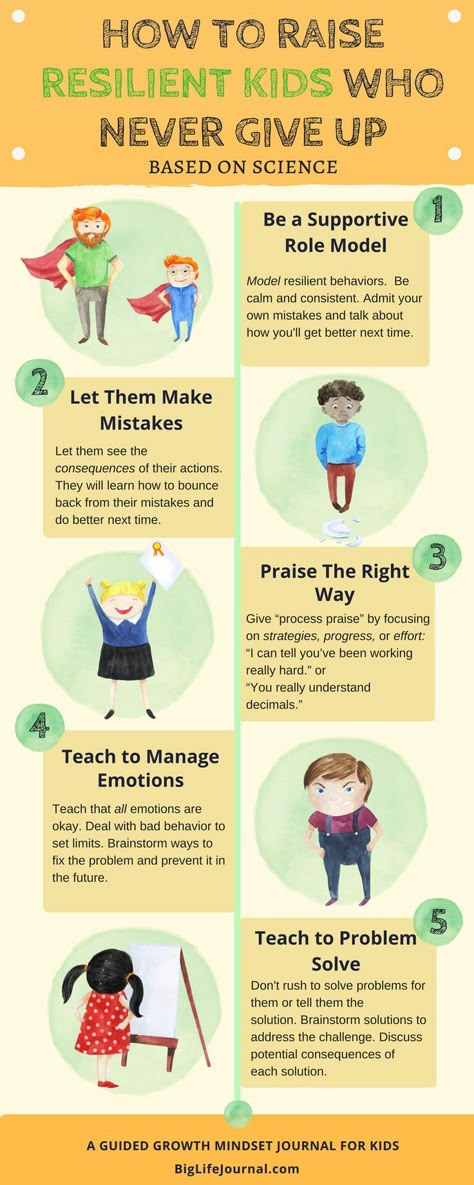
Their brains use different parts of the nervous system to signal the introvert to "rest and digest" , and to an extrovert - "act or freeze" .
Don't take it personally or be upset if your child wants to spend time alone. Anything that pulls a child out of his inner world, whether it's school, socializing with peers, or even getting used to a new schedule, exhausts him. nine0003
Consider yourself lucky if your child is ready to tell you about the important events of the day by evening or the next day. After all, some, in order to "ripen", it takes days and even weeks.
If you really want to help a child on his path to learning, pay attention to the following things: when he experiences a surge of energy, and when he has a decline, and which subject is the most difficult for him, and which is the easiest? Do not set too strict time frames, do not rush the child - he will only get lost from this. nine0003
Be prepared that your child:
- may ask you to babysit while he does his homework;
- wants to eat and be alone first;
- will do a better job if it is interrupted from time to time;
- wants to rest first
The child should do his homework in a quiet environment, where he is not distracted, and all the necessary materials are at hand. Also, the child should be able to have a snack at any time. If the child does not want to do homework, ask what happened and how you can help him. nine0003
Also, the child should be able to have a snack at any time. If the child does not want to do homework, ask what happened and how you can help him. nine0003
Ask probing questions to help your child understand a topic, but don't do all the work for them.
Help your child create positive self-talk: "I can do it" "I'll get through this step by step" "Today I know more than yesterday" .
HOW TO BE A TEACHER?
It is very important to talk to the teacher about your child's introversion. This will help teachers to correctly interpret his behavior.
In addition, the teacher will be able to quickly help him to establish interaction with other children. nine0003
Teachers, in turn, should not mistakenly assume that introverted children rarely speak up in class because they are not interested or do not know the material. Throwing all your strength into the fight against noisy and restless extroverts, in no case forget about quiet and inconspicuous introverts, because at this time they are actually very attentive and focused, they just prefer to listen and observe more, rather than actively participate.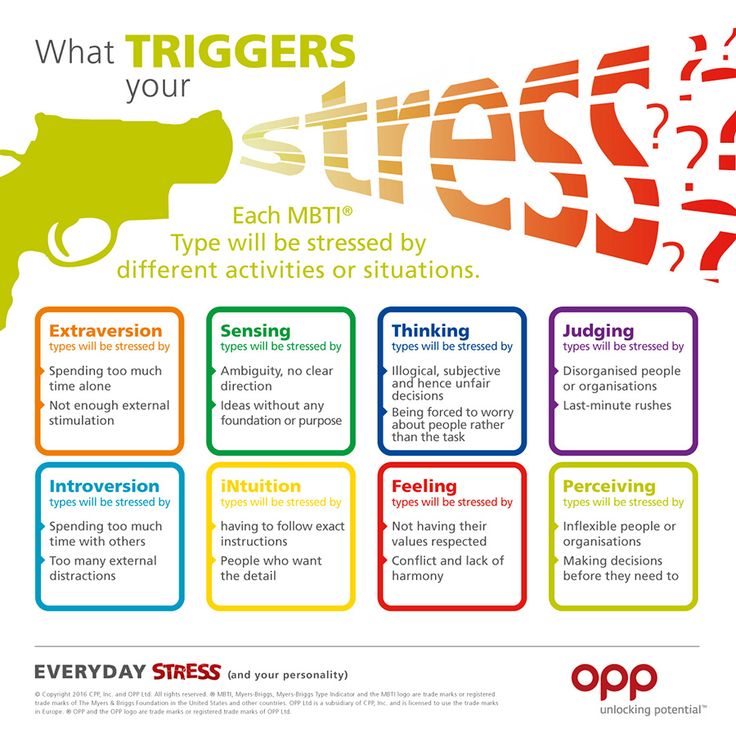
Be sure to praise the child when he shows even a little activity - this cheers him up and gives him strength and self-confidence. It will be a real success if you can create such an atmosphere in the team in which you will support each member of the group together. nine0003
Do your best to make your child feel heard.
It is also important for a teacher to remember: introverts love to explore any subject in depth and do it very conscientiously. They are very diligent and do the lion's share of all the work in the group. You can always rely on such children and they can be great helpers for you in any task.
SENSITIVITY, LOVE AND FAITH IN A CHILD
In order for an introverted child to truly flourish, constant mutually complementary work of both the teacher and the parent is necessary. nine0003
Don't forget what an outstanding person the representatives of the world of introverts have become. Among them are Frederic Chopin, Isaac Newton, Albert Einstein, Arthur Schopenhauer, Steven Spielberg, JK Rowling, Mother Teresa, Mahatma Gandhi and many other talented people.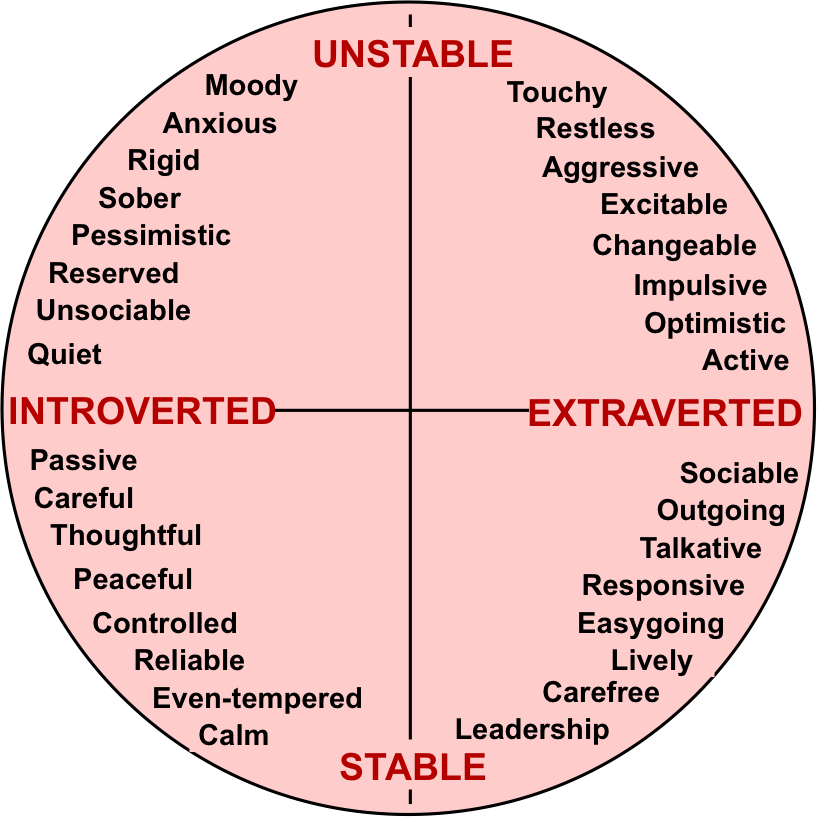
Believe in your child, be close to him and always remember: each person is unique. There are no pure introverts and extroverts, there is your child who grows, changes, perceives and gives. Listen, look and be sensitive to your loved ones. nine0003
An introverted child: signs and characteristics of upbringing
Together with Daria Kuznetsova, a conflictologist at the Internet Lesson Home School, we find out how to recognize that a child is an introvert. How to properly build communication so as not to spoil the relationship, but to help.
Daria Kuznetsova
Practicing psychologist-conflictologist. She has 12 years of experience working with children with various psychophysiological developmental characteristics. nine0003
The inclinations of temperament and personality traits appear at a very early age and become noticeable as soon as the baby acquires the skills of self-expression. The main signs of an introverted child can be fully observed already by the early school age.
The main signs of an introverted child can be fully observed already by the early school age.
Introverts find it more difficult to build social connections, they often keep to themselves and don't talk much. The best solution for parents in this case would not be to break the character of the child, but to create comfortable conditions for his adaptation. Thus, children can receive education and additional knowledge remotely, without hard contact with peers and teachers. nine0003
9 signs of an introverted child
Before thinking about what to do with an introverted child, check whether he is really an introvert. It is important to understand that this feature is not a diagnosis and not a negative personality trait. Outgoing parents may well have a closed baby. This is due to the specifics of the structure and functioning of the brain, genetic predisposition and hormonal properties.
The main personality traits are laid in the period of fetal development, before the birth of a child. Upbringing, environment and socialization correct these properties, but do not change them drastically. nine0003
Upbringing, environment and socialization correct these properties, but do not change them drastically. nine0003
Takes new things with caution
This manifests itself at a very early age. Introverted kids perceive the first complementary foods with great apprehension, run less, rarely feel cravings for studying parental closets.
Such a child can be safely left alone with toys or a book, he likes to understand the essence of things, and not to observe a large number of them.
Trying to grasp the essence
Reluctance to make quick decisions until you are completely sure of the safety of actions is characteristic of an introvert. He carefully studies the details of mechanisms, subjects, training materials. It is important for him to understand why what surrounds him works the way he does. nine0003
Doesn't talk to strangers
Children and teenagers who are introverts need more time to get used to people. The kid will prefer to be silent, not to look into the eyes and not to contact tactilely with a new person.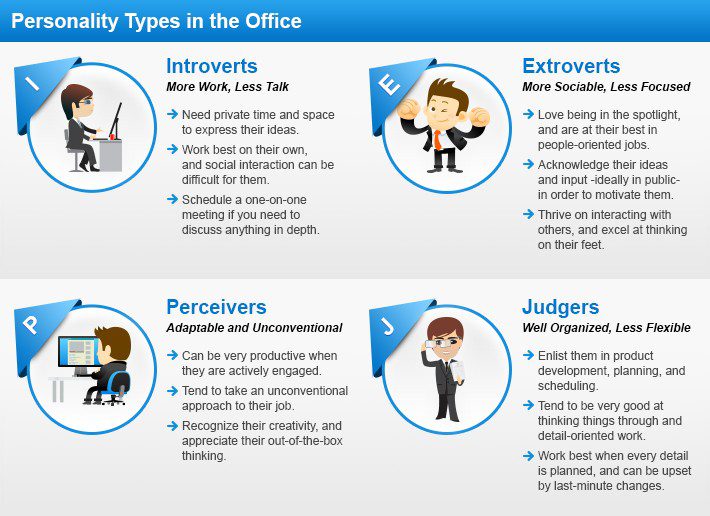 This behavior is diametrically extroverted, who are happy to make new friends, calmly communicate with unfamiliar adults.
This behavior is diametrically extroverted, who are happy to make new friends, calmly communicate with unfamiliar adults.
The first week of classes is free!
Start studying, and at the end of the trial period, pay for the chosen format! nine0003
Feels great alone
Many parents are familiar with the problem of excessive thirst for attention from children. Kids want constant communication, require joint games and conversations. This does not apply to introverts. They are comfortable playing alone. Even in the company of peers, they often sit on the sidelines, doing their important children's business.
Quickly gets tired of noisy companies
After playing on the playground, a day in the garden or at school, the introvert's nervous system needs rest. After active fun, the child may be capricious and cry until he is given the opportunity to be alone with himself. So his nervous system replenishes energy reserves. nine0003
nine0003
Possesses adult thinking
Reasoning and questions that help to penetrate the essence of the surrounding world are typical for an introvert. Deep reflections and a lively mind are the fruit of the measured mental activity of people with this type of temperament.
Has a bright personality
The psychological characteristic of introverts is reduced to concentration on oneself. Therefore, personal qualities, the desire for self-expression in such children is higher than that of their peers. At a more adult age, they can go headlong into creativity or popular subcultures, in search of ways to transform their “I” into a manifestation visible to the outside world. nine0003
Carefully chooses words
Having mastered the skills of speech, an introverted child tries to build his speech by rationally choosing expressions. He can answer questions in detail, conduct measured conversations. From the side it seems that he almost does not experience emotions, he is always in a calm state. Such children willingly show emotions only in a circle of well-known people.
Such children willingly show emotions only in a circle of well-known people.
Rarely asks for help
Introverts are independent individuals. They find it difficult or unwilling to ask for help from loved ones, and even more so from strangers. They like to deal with complex problems on their own. nine0003
In school, introverts can brilliantly solve the most difficult tasks, and flunk the simplest lessons. It is worth treating with understanding this feature of the personality of the child.
Shy people often mistakenly consider themselves introverts and vice versa, introverts believe that the problem is shyness.
It is important to understand that these concepts imply fundamental differences in relation to communication and loneliness. And most importantly, shyness can be overcome, but introversion cannot be completely eradicated. nine0003
Therefore, parents and children should initially determine whether such behavior is an acquired quality or an innate temperament.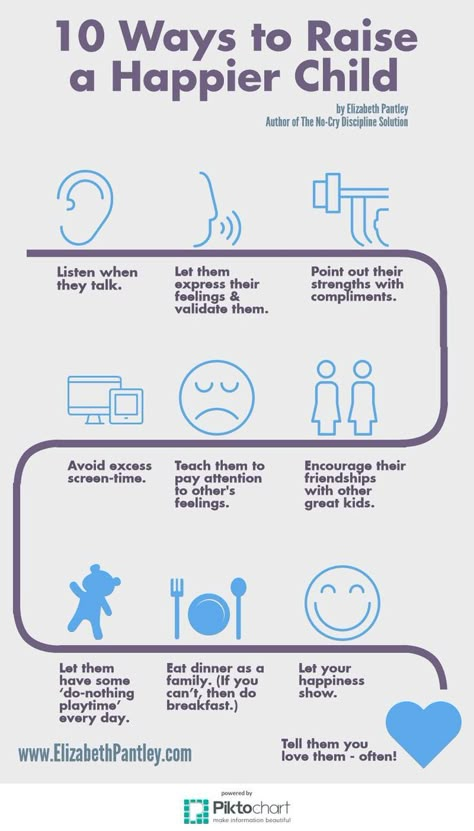
Psychologist's comment:
There are children who bring home any guests and they are happy about it. These are extroverts. And there are those who can not stand the guests. If necessary, they can go somewhere, but they do not invite them to their place. These are introverts. nine0003
Extroverts energize in a place where there are many people. Loneliness makes them tired. For introverts, the opposite is true. They accumulate energy, being alone, and lose it with a large crowd of people.
Sometimes introversion is viewed through the prism of personality typology. According to her, an introvert in an absolute form is a schizoid type. He is characterized by emotional isolation, stiffness in movements and sound, constant theorization of what is happening. But let's start with the fact that pure introverts do not exist. An admixture of extraversion will show up to a greater or lesser extent.
But unfortunately, characteristics that are more suitable for the schizoid type are often attributed to the introvert. nine0003
Meanwhile, if necessary, an introvert can easily talk to whomever he sees fit. And if help is suddenly needed, then he is quite capable of asking for it both close people and an unfamiliar passerby. It can be difficult for an introvert to express himself in public activities, however, we know actors and artists who have this type of personality.
Sometimes in our society the qualities of an autist are also attributed to an introvert. But an introvert communicates quite calmly and evenly with any people, without experiencing significant difficulties. Another issue is that he does not need to communicate with them. He will not start grabbing their hands and dragging them anywhere. It's okay for him to keep his distance. He does not aspire to noisy companies where the loss of energy occurs involuntarily. nine0003
And introversion is by no means an indication that there is a calm temperament.
They are different coordinate systems. There are closed children, but if there are no clinical prerequisites, then you should not focus too much on this.
Raising an introverted child
Children with this type of temperament tend to retain both the negative and the positive. They are secretive and reserved. Trusting relationships in the family will help the child open up faster, smooth out the negative aspects of temperament. nine0003
How to raise an introverted child
- Prepare your child in advance for a change of scenery or meeting new people. Discuss the circumstances, tell more about strangers. You can deal with older kids. Kids will have to be occupied with their favorite toys or books, be patient. Otherwise, the child will be capricious or hysterical.
- Pay close attention to his emotional state. Introverts tend to hide it. Parents need to study the behavior of the child and respond to changes.
 You can invite the baby to talk about what is bothering him. Or indulge in your favorite activities. nine0104
You can invite the baby to talk about what is bothering him. Or indulge in your favorite activities. nine0104 - Leave your child space. An introvert needs to be alone with himself. Ideally, he should have his own room or corner where no one will bother. Time alone will allow him to survive the emotions accumulated during the day, take a break from communication.
- Help to find a common language with people. With such a temperament, it is difficult to build social ties. At first, it may seem to others that the introvert is gloomy, unsociable. In fact, he does not feel negative towards society, it is simply more difficult for him to interact. Parents will need patience and time to teach the baby the rules of communication. nine0104
- Do not force the child to talk if he does not want to. From an early age, the baby may refuse to speak or will begin to do so later than others. Do not panic, even if relatives hint at developmental disabilities, if the child develops normally in other respects.
 He will speak when he wants to.
He will speak when he wants to. - Be sensitive to your child's needs. Introverts find it hard to get used to new rules and groups. This also applies to education. For a pronounced type of character, you should think about home schooling. nine0104
Without proper attention to the need for rest from communication and loneliness, an introvert can fall into a stressful or depressive state. It is better to take care of a comfortable environment for such children in advance.
Psychologist's comment:
An introverted child does not have such a wide range of communication compared to an extroverted child. In view of this, parents and the teacher will be very significant figures in childhood. Through them, he will build his idea of the world. nine0003
On the one hand, this is a plus. Such children are less likely to fall into bad company, as well as dubious adventures and rendezvous with alcohol and other things.

But on the other hand, if he gets carried away with something undesirable, it will be difficult to get him out of there. This applies, for example, to computer games and excessive interest in gadgets.
One should try to diversify one's life with communication. Organize small outings: theaters, cinemas, restaurants will definitely benefit. He himself will not show such initiatives. But do it together, because he doesn't trust anyone in particular. His social circle is a couple of friends and mom and dad. nine0003
It is good to initiate participation in events where social adaptation is inevitable. For example, buying tickets for tourist trips, pushing to participate in hiking. And although he himself will not rush there, but there he will definitely have a true friend.
Without a doubt, such a child should have a personal space - a room or some special place. Going there, it is better to knock. Don't force your child to talk if he doesn't want to. Be tactful and do not exaggerate its features.
nine0003
In fact, we are all a little introverted and all of the above would be nice to apply to any of us.
Things to remember
A calm, thoughtful child is a real godsend for parents, but only at first glance. Adults may face the negative consequences of these characteristics. For example:
- The child does not want to communicate with peers and make friends. Others and some doctors may even see signs of autism in this. In fact, introverts are able to build strong relationships and make great friends. Just don't rush your baby. He needs a little more time for this. nine0104
- Refuses to interact with unfamiliar adults. A standard situation: distant relatives come to visit, and the baby greets them with tears, refuses to even come up, not to mention hugs or gatherings in their arms. With understanding relatives, you can negotiate, invite them to behave with restraint. With those who do not understand, it is better to limit contacts until the baby grows up.

- Unsure of himself. Concentration on oneself often results not only in the development of personal qualities, but also in self-criticism, introspection. The kid needs to be helped to believe in himself, to teach him to adequately perceive criticism or the careless words of others. nine0104
- Does not want to go to holidays and entertainment events. Most children will be happy to visit a children's party, a park or go to the rides. Introverts prefer to stay at home, in silence. There is nothing to be done about this feature. They just like to be in silence and familiar surroundings.
In order to develop harmoniously, it is important for children to feel safe and meet the understanding of relatives. It is strongly not recommended to try to reshape an introvert, to make him fall in love with communication or noisy companies. All parents can do is to accept their child and his personality. nine0003
Subscribe to our newsletter
By clicking on the button, you consent to the processing of your personal data.
You have successfully subscribed to our newsletter
You will soon receive a subscription confirmation email
Introvert education
If parents are sure that their baby is an introvert and it is difficult for him to be in unfamiliar companies, you should think about the form of education from an early age.
Kindergarten
Pre-school education can be abandoned altogether. Initial skills: fine motor skills of hands, reading, counting - easy to master at home in classes with parents. Neat communication with peers is organized through playgrounds and children of family friends of a similar age.
Do not be afraid that in childhood the child will not learn how to build social connections. Communication of very young children is primitive and has little in common with adult contacts. For an introvert child, such a loss will not be significant. nine0003
How to increase motivation
How to motivate a child to study if he does not want to study, does not do his homework and is often distracted? Practical advice for schoolchildren and their parents.
School
Children receive the main layer of academic knowledge at school. This is the time to broaden your horizons, to search for your area of interest. You can’t refuse secondary education, but for introverts you can find an alternative.
- Homeschooling. Classes are taught by parents or tutors according to generally accepted standards. The disadvantages may be the cost and lack of knowledge of the teachers themselves. In addition, at home and in the family circle, it is more difficult to establish a strict schedule of classes. It is necessary for the child to have a clear understanding of the periods of work and rest, to be able to tune in to productive studies. nine0104
- Distance learning. The best option for introverts. Classes are held according to a pre-planned schedule online. They have everything: compliance with educational standards, homework, knowledge testing and grading. The only thing that is excluded is direct contact with peers and teachers.
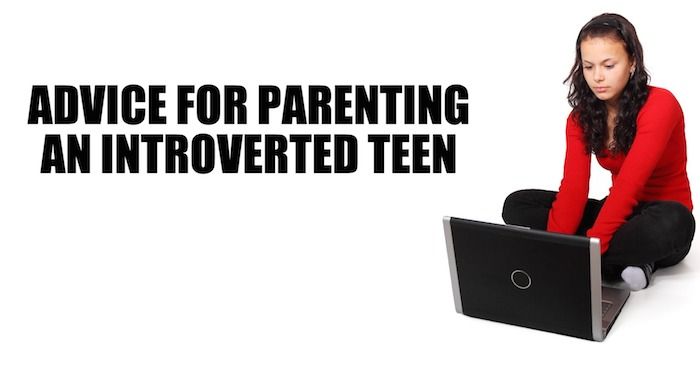 This will greatly facilitate the life of a small introvert. In addition, such education will cost parents much less than hiring tutors.
This will greatly facilitate the life of a small introvert. In addition, such education will cost parents much less than hiring tutors.
Home school "InternetUrok" offers classes in all school subjects. Children study in the comfort of their own home. You can fill the gap in contacts with peers with the help of hobby groups, sports sections, etc. Thus, it will be possible to maintain a balance between the student's need for solitude and the need to give him a good education. nine0003
University
By the time of graduation, the introvert is already finishing his teenage period of personality formation. At this age, he is old enough to decide for himself what he wants. If a high school graduate has thought out a plan other than studying at the university, you should not force him to change it. Introverts do not make decisions without careful thought, a clear plan.
At the Internet Lesson Home School, everyone can get a secondary education, starting from the 1st grade, remotely.





